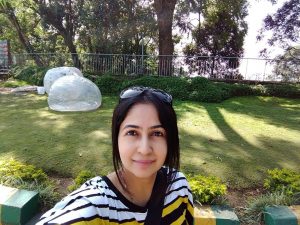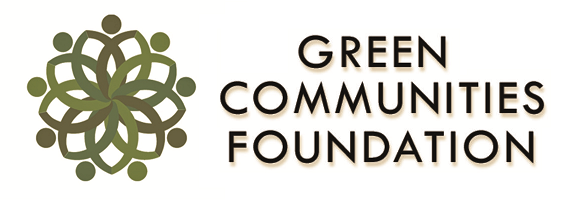
Ms. Barkha Khanolkar
She is a part of the management committee in her society and drives waste management. She has initiated 3 way segregation at source and now the society has set up composting units on the terrace.
GCF Team:
Can you start by telling us about yourself?
Ms. B
I’m from Goa and I moved to Bombay for work about 10 years ago. I have an engineering background and have also completed an MBA in marketing. My family in Mumbai consists of my husband and my two sons who are 2 and 7 years old.
Both my parents were involved in social worker. My mother used to go out of her way to help the not only our house-help but even other maids. She used to help them open ‘zero frills’ bank accounts and explain the importance of financial planning. My father was the Secretary for the State Social Welfare Board, a body that helped fund state anganwadis and other small scale industries. Hence, social awareness has been a part of my childhood and is ingrained in my outlook.
GCF Team:
Have you thought of or noticed waste management in your life or career before?
Ms. B
Goan villages have been using biogas for cooking for years now before thus reducing the waste output. Since we lived on the outskirts of the city we got our produce directly from the farmers’ markets on the peripheries of the fields. Therefore the food consumed was fresh and organic. We followed the farm to plate concept and I miss it in a big city like Mumbai.
Further, Goa has been following waste management for last 20 odd years and hence waste management was prevalent during my years of growing up and segregation of waste is a habit. Wet waste was collected everyday and dry waste was collected twice a week. In the initial days the composting used to happen within the society itself within concrete tanks in the parking lot of the building. Hence the compost was a bit smelly and wet unlike the compost on the terrace in Bombay, which is relatively dry and not that smelly.
We had a tiny garden within the society with 10 – 15 banana plants within the complex. Here the compost from our society itself was used. There was a marked difference in the quality of the bananas produced in the mini garden and the ones from market, with the homegrown ones being sweeter.
When the BMC in Mumbai started talking about waste management, I was very happy as I consider Mumbai my second home for the last 12 years. No doubt, Goa is smaller and waste management would be easier to control there however its better late than never and every bit of effort counts.
GCF Team:
Do different generations have different perspectives to waste management?
Ms. B
It may or may not be a generation difference, it could be a difference in mindset. However our previous generation did not do much to harm the planet.
At the farmer’s markets, no plastic was used, we used our own bags. We used glass milk bottles or “patilas” for milk. The farmers use jute stacks for seats, glass bottles for milk rather than plastic. Gadgets lasted us for 10 – 15 years rather than becoming obsolete in a few months. There was a culture of repair rather than replacement. But I feel something went wrong and the consumption has only increased with the generations. It’s time to learn from our mistakes and learn recycling and reusing again.
To elaborate more on a civic sense. In a Nordic country, I forget which one, employees who reach early park their vehicles away from the office so that those who are late can park and reach office quickly. Moreover, you can be fined if you waste food in a hotel in these countries unlike here. People tend to waste food by over ordering.
GCF Team:
Are there any social causes that you are interested in?
Ms. B
I am interested in being a part of the cleanliness drives and want to inculcate this as a habit in people. In fact, when people litter I like to point out and get them to correct it so that they dont repeat it again. Personally, I feel if you are proud of something / someplace you tend to look after it either by keeping it clean / maintaining it.
GCF Team:
Have you taken up any projects outside your career?
Ms. B
My kids are young, so not yet.
I am inspired by Israel using rainwater efficiently. The long term goal is to back to our grassroot and take up farming using innovative methods with minimum use of water. Effective farming is the way forward and I would love to practise these methods.
GCF Team:
Any routine or habit that you do daily for a specific reason?
Ms. B
My days are flexible, with 2 young kids there is no monotony and I love to change it up.
GCF Team:
Do you read? If yes, if you had to recommend a book which one would you recommend?
Ms. B
I haven’t read much of substance lately, but I like to go back to 7 books of a “Krishnavtara series” by K.M. Munshi. This series shows Lord Krishna in the light of a statesman, leader and a politician rather than a God making it more relevant to today’s generation.
GCF Team:
If you had to choose a message for 1 million people, what would it be?
Ms. B
Never push a loyal person to the point where they no longer care.
GCF Team:
Is there anything that you have purchased below 1 grand that has impacted your life?
Ms. B
A story book called “Peppa Pig”, it is a Rs. 250 purchase and my younger son listens to me read it everyday before milk time.

